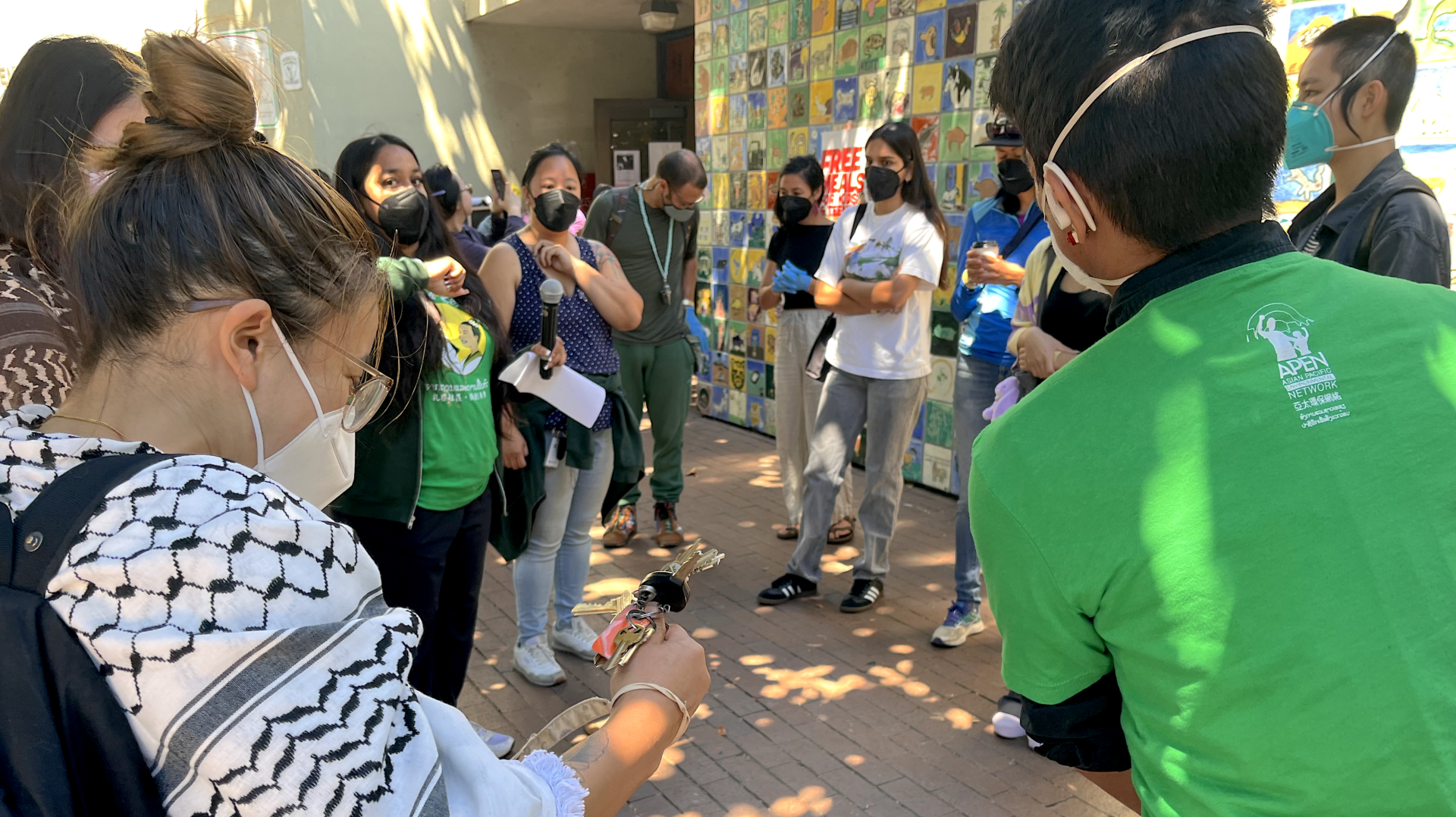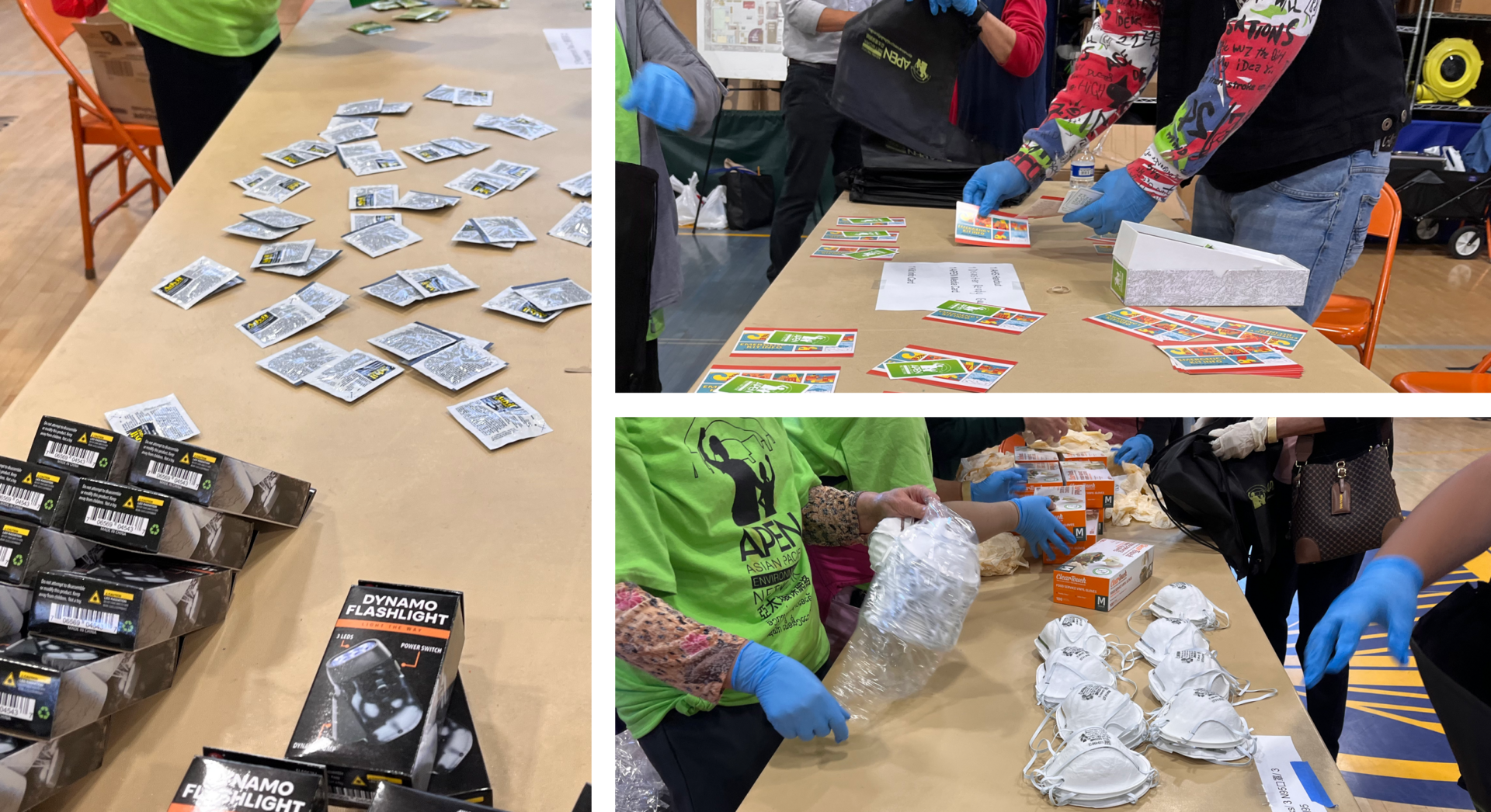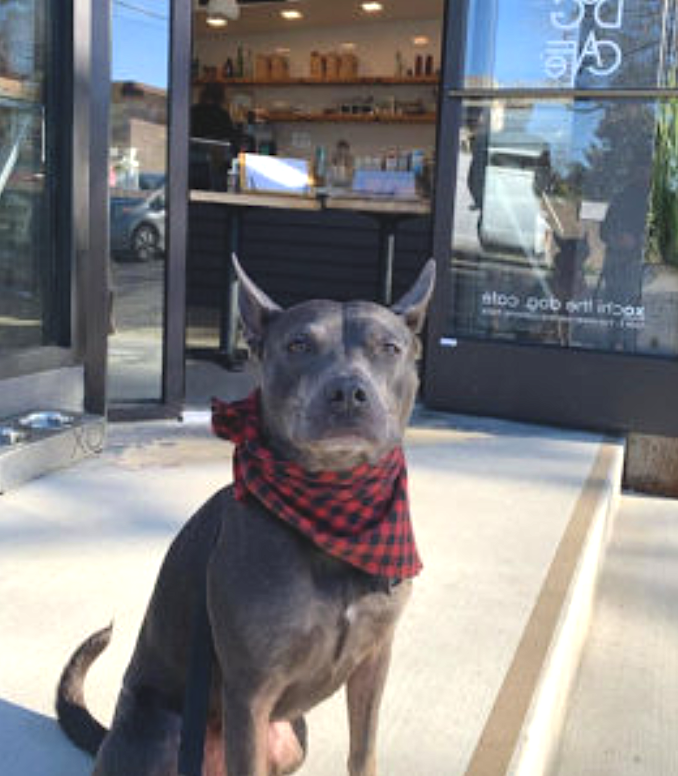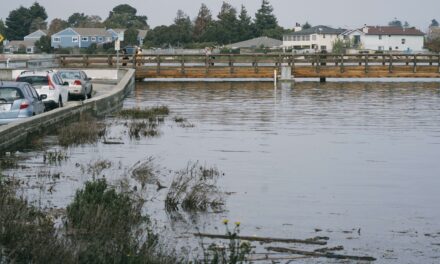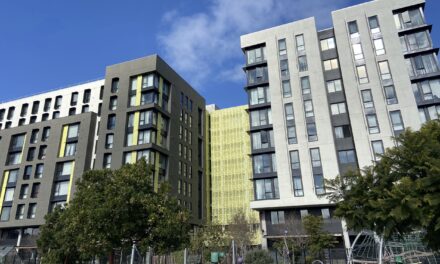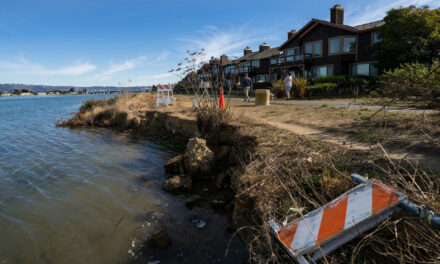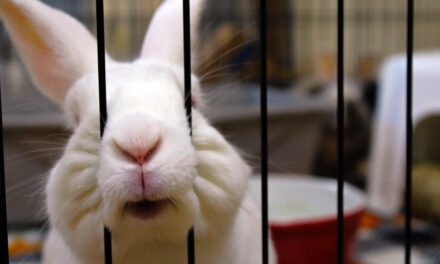Uncertainty Requires a Buffet of Resilience Choices
On August 14, over 70 community members gathered outside of Oakland Chinatown’s Lincoln Square Recreation Center to assemble hundreds of emergency resilience kits, courtesy of the nonprofit Asian Pacific Environmental Network.
“How many of you have eaten at a buffet?” asked the APEN coordinator. The intergenerational audience of volunteers—from children fiddling with toys to elders picking at the remnants of their catered lunch—raised their hands. “Well this will be like a buffet, but you have to pick everything,” she explained. Off to her side, a translator repeated her instructions in Cantonese for a large group of Asian elders, most of whom were wearing bright green APEN shirts. For the rest of the afternoon, the Lincoln Center echoed with bouncy hip hop and peals of laughter, as a rotating assembly line of community volunteers stuffed drawstring bags with Advil, peppermint tea, medical-grade face masks, COVID tests, and other supplies. All the volunteer groups took home 500 kits at the end of the day for their communities.
“Our communities are primarily monolingual, immigrant, working-class renters who live on the front lines of environmental injustice – heavy industrial pollution, high traffic corridors, unsafe housing, and unsafe workplaces, and climate change,” explains Shina Robinson, APEN’s resilience hubs manager. With plans to add new solar panels, backup battery power, and HVAC systems, the long-planned Lincoln Center resilience hub will act as a safe place for people to turn to during wildfires, heat waves, or other extreme weather challenges.
Events like the organization of emergency supply kits are designed to get the community on board with the hub’s daily programming—youth events, food distribution, climate readiness planning, CERT training—and assemble a coalition of different neighborhood groups. Representatives from the Friends of San Antonio Park, Fruitvale East Oakland Collective Land Trust, Richmond’s RYSE Youth Center, and many more showed up to discuss both progress on this one hub – 28 years in the making — and possible directions for the future. Robinson says: “It’s taken community organizations to steward that process and create a consistent campaign around it.”
Other Recent Posts
Assistant Editor Job Announcement
Part time freelance job opening with Bay Area climate resilience magazine.
Training 18 New Community Leaders in a Resilience Hot Spot
A June 7 event minted 18 new community leaders now better-equipped to care for Suisun City and Fairfield through pollution, heat, smoke, and high water.
Mayor Pushes Suisun City To Do Better
Mayor Alma Hernandez has devoted herself to preparing her community for a warming world.
The Path to a Just Transition for Benicia’s Refinery Workers
As Valero prepares to shutter its Benicia oil refinery, 400 jobs hang in the balance. Can California ensure a just transition for fossil fuel workers?
Ecologist Finds Art in Restoring Levees
In Sacramento, an artist-ecologist brings California’s native species to life – through art, and through fish-friendly levee restoration.
New Metrics on Hybrid Gray-Green Levees
UC Santa Cruz research project investigates how horizontal “living levees” can cut flood risk.
Community Editor Job Announcement
Part time freelance job opening with Bay Area climate resilience magazine.
Being Bike-Friendly is Gateway to Climate Advocacy
Four Bay Area cyclists push for better city infrastructure.
Can Colgan Creek Do It All? Santa Rosa Reimagines Flood Control
A restoration project blends old-school flood control with modern green infrastructure. Is this how California can manage runoff from future megastorms?
San Francisco Youth Explore Flood Risk on Home Turf
At the Shoreline Leadership Academy, high school students learn about sea level rise through hands-on tours and community projects.
In 2020, Oakland City Council passed their Equitable Climate Action Plan, which calls for the construction of three resilience bubs by 2030. The Lincoln Center is currently the only location with imminent construction plans, after securing a $9.25 million grant from the California Department of Food and Agriculture last year. “We already have a database of buildings that have the space and infrastructure to be potential resilience hubs,” says Nick Kordesch, energy programs manager for the City of Oakland. “The next step is community outreach to find out which ones are trusted by the residents around them. Resilience hubs require collaboration with community organizations and across many city departments – it’s a holistic type of project.”
However, the funding for smaller local resilience efforts is piecemeal and scattershot, according to Susan Silber, program director of the nonprofit advocacy group Collective Resilience who has been catalyzing resilience hubs for the past several years. Not every hub has to be big or even full service, she says. “There are many places in our community that already operate as informal resilience spaces, offering some services everyday and some during emergencies. What we need now is a coordinated network.”
Miya Sommers, coordinator for the Friends of San Antonio Park, agrees. The San Antonio neighborhood, which is not easily accessible by BART, struggles whenever heat waves or poor air quality days occur. “For us, climate catastrophe shows up in multiple ways on a daily basis,” she says. “It’s exciting that the folks at Lincoln Square Park are sharing their resources, because the state gives out small slices of the pie but doesn’t actually help us access that funding or navigate institutional barriers.” Sommers’ hope is that over the next few years, they’ll be able to turn the San Antonio local library into a smaller drop-in resilience hub.
Other East Bay organizers are looking to leverage places of worship, schools, and community-based organizations for climate resilience. In San Leandro, Temple Beth Sholom is building an off-grid, solar-based power system for the neighborhood, while the Bethel Community Presbyterian Church acts as a key food distribution center to nearby schools and BIPOC populations. In East Oakland’s Clinton neighborhood, Xochi the Dog Cafe doubles as a coffee joint and a climate resilience hub that hopes to offer emergency shelter, disaster preparedness classes, and a community garden.
“A more decentralized network of hubs of all types could literally save lives, and honor the work of existing sites already doing the resilience work,” says Silber. “Building a network has to be a community-driven process, which is democracy and equity at its best.”






